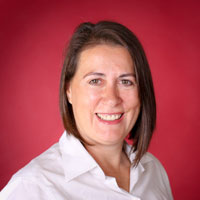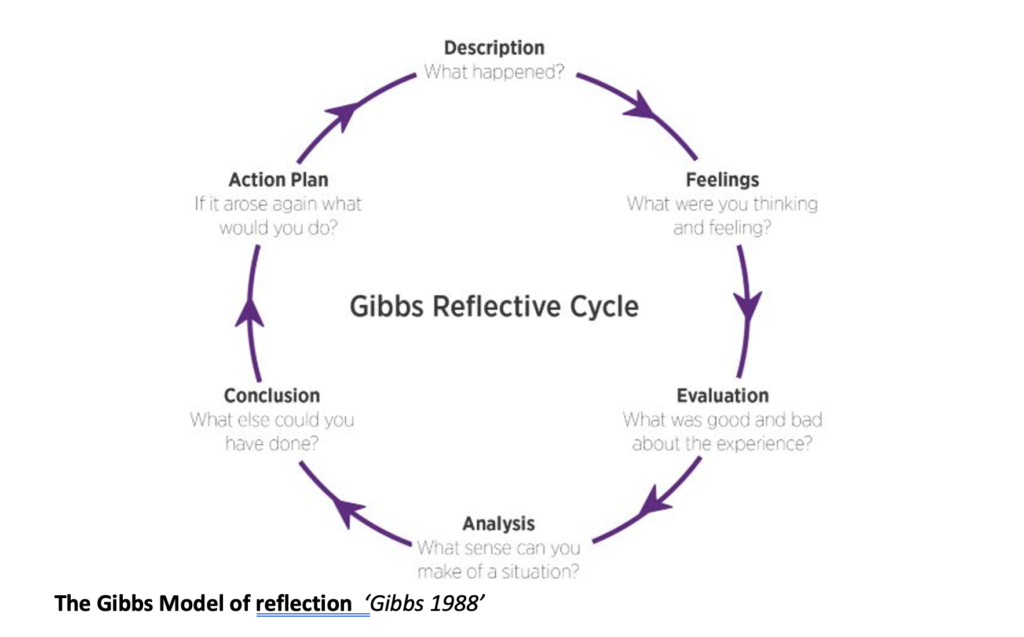Showing a commitment to continuing professional development, will help you be more confident, could land you a promotion, help you move to your dream job or keep you at the top of your game in your current role, says Karen Waite
A key theme and technique of professional development is reflection – on our behaviour, learning and performance. Reflection is key to learning and an essential life skill to be developed. Taking the time to stop and think about where we are, where we want to be and how we are going to get there.
Reflection is personal to each individual as we increase our understanding of our own learning and self-awareness and studies have shown that people who reflect on their learning retain more information and are significantly more efficient at applying it to their performance.
What is reflective practice?
Reflection is a skill to be developed. It is an active process, that requires effort and practice, it will change your perception from seeing reflection as a surface-level reaction to a more considered and deeper thought process.
When it comes to considering a definition of reflective practice, there are many. Here are two that describe it well.
Defining reflective practice:
‘A means of learning from experience, bridging the gap between theory and practice, coping with ambiguity and change, and developing critical awareness’
Knasel, Meet & Rossetti (2000) Learn for your life: FT Prentice Hall
‘The learner is willing extensively to modify their cognitive structure and is able to evaluate the sources of their knowledge and their process of learning’
Moon JA (2004) A Handbook of Reflective and Experiential Learning – Theory and Practice.
Another approach to reflection: what – so what – now what
Consider when did you last stop and think about a learning activity or a mistake you made or a successful event you achieved? Asking yourself what, so what, now what about a situation or learning event, will help give you more insights.
The ‘what’ stage is the experience itself and immediate observations. The ‘so what’ stage consists of thinking about the implications of what happened and other people’s reactions, potential consequences, and outcomes. The final stage ‘now what’, is about looking at how to go forward and planning for future behaviour.
As with many forms of practice, there are different layers of practice and ‘Gibbs model of reflection’ has three levels of reflective practice, that underpin this model:
1. Descriptive – what happened
2. Descriptive reflection – what happened and why it happened
3. Critical reflection – reflecting from multiple perspectives and the influences of the context.
Gibbs is well-known and developed. It is an effective ‘Reflective Cycle’ model detailing the cycle of reflective practice that allows learners to transform their perception on reflection by following a simple reflective cycle.
Below is the Gibbs model of reflection and you will see it goes beyond the basic description of what happened and involves feelings, evaluation of the experience, analysis, conclusion and most importantly action plan to ensure you either continue the good practice or learn from it.
Application of The Gibbs Reflective Cycle
Think about a situation or learning experience, consider and detail each question of The Gibbs Reflective Cycle, as outlined below. The key part to this is feelings. We often don’t consider how something made us feel though is an essential insight.
- Describe what happened?
- What were you thinking and feeling?
- What was good and bad about the experience?
- What sense can you make of a situation?
- What else could you have done?
- If it arose again, what would you do?
This should give you an in-depth understanding, self-awareness, and insights that you can use for your development and to build your confidence. Remember, practice makes perfect so continue to use this process and develop that muscle memory.
How is the development of reflective practice beneficial to professional development?
There are many benefits of reflective practice in the workplace.
From helping to manage work stress and building emotional intelligence to enabling the development of critical thinking skills, reflective practice is important in maximising our career development.
Here are some of the benefits of reflective practice:
- Building self-awareness
- Creating willingness to experiment and learn from mistakes
- Creating flexibility and creativity
- Developing interest in learning and development
- Building connections
- Builds our confidence
Like any other aspect of learning and development, reflective learning is personal. Developing an individual approach and learning from it is the best way to maximise your progression.
Here are some great reflective practice techniques you can try. See which ones work best for you:
- Notebook, audio, electronic and shared devices
- Using a reflective journal, either paper based or online
- Revisiting past events, learning to identify patterns and changing perspectives
- Following learning cycles e.g. The Gibbs Reflective Cycle
- Asking yourself questions e.g. What? So What? What next?
- Recognising emotional triggers
Is reflective practice time consuming?
The combination of the ever-increasing technological advances in society combined with our constant access to emails, telephone/video calls and social media interactions are causing a reduction in the time spent on reflection.
As a result, reflection can sometimes be viewed as complex and even worse, a ‘waste of time’ and time consuming.
Reflective learning does not necessarily require recording, however, in the context of continuing professional development (CPD), create the opportunity to reflect on progress, review your current position and develop a plan. Overall, it is clear, reflective practice can be viewed as a skill.
If you allow yourself to recognise the reflection as a skill, naturally you will give it more time and attention and before you know it, your learning and development will transform. Using Gibbs Reflective Cycle will establish a good foundation to get feedback and learn about yourself and how you react and manage in situations.
Commitment to continuing professional development
CPD is the conscious and proactive commitment to enhancing personal skills and increasing learning throughout your career. The need for ongoing professional development has come about because our security no longer lies in our job, role or employer more in our skills, knowledge, capabilities and experience. We need to take individual ownership of our learning and development over the lifetime of our careers.
As you practice your reflection skills and develop the habit you should also record this either online or other to be able to review, plan and assess progress.
Showing a commitment to continuing professional development, will help you be more confident, could land you a promotion, help you move to your dream job or keep you at the top of your game in your current role.
I’ll leave you with my favourite quote by Henry Ford:
‘Whether you think you can or Whether you think you can’t. You’re Right’

Karen Waite has a passion for technology-enabled learning and a vision to revolutionise and personalise online Continuing Professional Development (CPD). As the founder of Leap Like A Salmon, Karen challenges perspectives and champions change, to encourage self-awareness, reflection and engagement. A Chartered Fellow of CIPD working with her professional body as an assessor and chief moderator, she has considerable enthusiasm, experience, and skill in leadership, change and professional development. Karen is committed to her own CPD and continues to look for richer and more rewarding learning opportunities.




